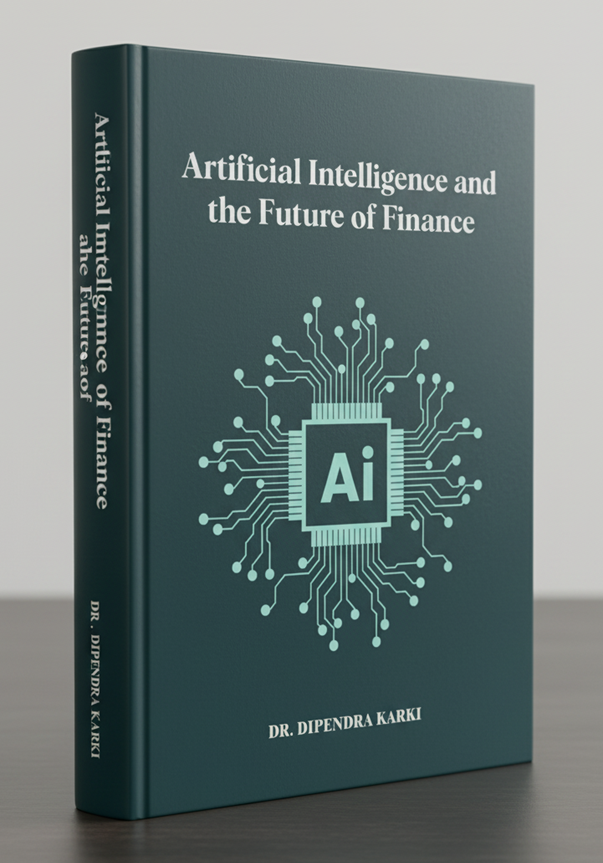The financial world is undergoing a profound transformation. At the center of this change lies a force that is both disruptive and revolutionary—Artificial Intelligence (AI). As the global financial ecosystem adapts to increasingly complex market conditions, regulatory landscapes, and data-driven strategies, AI, particularly Generative AI and Large Language Models (LLMs), has emerged not merely as a technological advancement but as a strategic imperative.
In Artificial Intelligence and the Future of Finance, I explore this convergence between finance and intelligent computation. This book is the product of deep research, evolving curiosity, and a compelling need to decode how AI is reshaping everything from trading floors and credit assessments to research methodologies and corporate decision-making. The shift is more than operational—it is philosophical. Finance is no longer solely the domain of models grounded in static historical data; it now thrives on adaptive learning, natural language processing, and real-time insight generation. AI is not just automating tasks—it is redefining how we define value, assess risk, forecast outcomes, and generate alpha. Tools like ChatGPT and other LLMs are being rapidly integrated into functions such as algorithmic trading, text-based sentiment analysis, financial forecasting, regulatory compliance, and academic research, signaling a paradigmatic change in both finance and financial scholarship. As I reviewed the literature and surveyed recent innovations, one thing became clear: we are not merely witnessing the digitization of finance, but the intelligent augmentation of human decision-making in financial systems.
This book deals into these transformative dynamics. It critically evaluates how AI is influencing predictive modeling, empirical finance, risk analytics, and quantitative research techniques. It examines how financial professionals and academics are deploying AI-driven tools for more efficient market navigation, and how these tools are also democratizing access to high-level analysis that was once confined to elite institutions. Importantly, this book also reflects on the ethical, practical, and philosophical implications of AI in finance. What does it mean when machines participate in financial decisions? Can algorithms outperform human judgment? What are the risks of overreliance on black-box systems in high-stakes environments? And how should educators and researchers respond to these shifts to prepare the next generation of finance professionals? This journey began with a fundamental question: How can artificial intelligence enhance both the practice and the understanding of finance in a way that is meaningful, sustainable, and inclusive? The answers are still emerging, but through this work, I have sought to synthesize the current state of knowledge, propose avenues for future research, and offer actionable insights to practitioners, researchers, and students alike.
For finance professionals in emerging markets, especially in South Asia, this conversation is even more critical. While AI capabilities are becoming globally accessible, the contextual adaptation of these tools remains a key challenge. This book brings a contextual perspective, considering the challenges and opportunities faced by markets like Nepal, where technological transformation is underway but must be strategically harnessed to bridge gaps in efficiency, inclusion, and innovation.
At its heart, Artificial Intelligence and the Future of Finance is both an invitation and a roadmap. It invites readers to explore how the convergence of human intelligence and machine learning can create new possibilities in financial theory and practice. It also offers a roadmap to navigate the evolving intersection of finance, technology, and strategic insight.
I have tried to be transparent in methodology, reflective in analysis, and forward-looking in approach. I welcome the reader’s critical engagement with this work, and hope it inspires further exploration in this dynamic field. We are only beginning to understand the potential of generative AI in finance. The future will not just belong to those who understand the markets—but to those who understand how machines are learning to understand the markets.
Dipendra Karki, PhD
Kathmandu, 2025
Published and distributed by: Sukunda Pustak Bhawan

